When asked if he feels like their family is finally done planning and setting up their new enterprise, Stew said, “I’m always planning five years down the road.” Rachael nodded in agreement and said that while Douglas, Arizona, may be off the beaten path, “there is real opportunity out here for motivated people!”
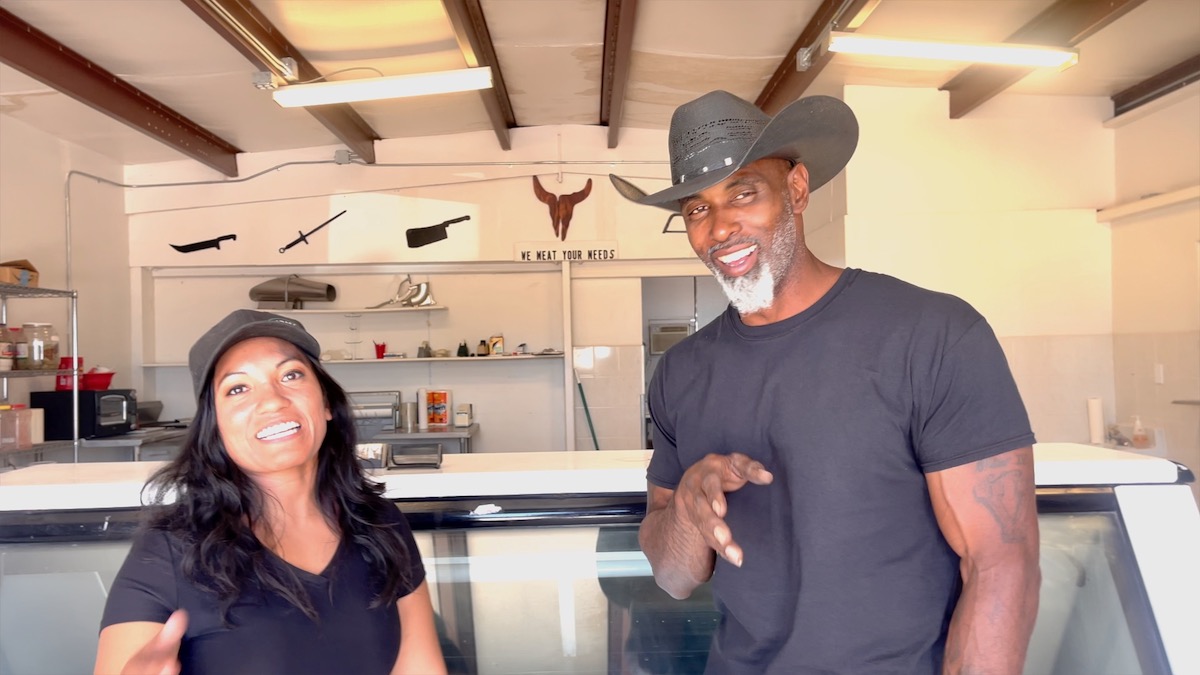
Rachael and James “Stew” Stewart
Former Phoenix-based fitness couple Rachael and James “Stew” Stewart have taken a new direction in their careers, trading in dumbbells for pitchforks as they embark on a new adventure as ranchers in Douglas, Arizona. Their ranch is called “Southwest Black Ranchers,” and has become a leading source of inspiration, business know-how and hope for aspiring Black and minority farmers across the country.
Before the pandemic, Rachael and Stew were fitness instructors, and Stew was a competitive bodybuilder.
“When the pandemic got going, we couldn’t source organic protein like we were used to,” Stew said, “and like many people during the pandemic, we took a look at our lives and decided to make a change.”
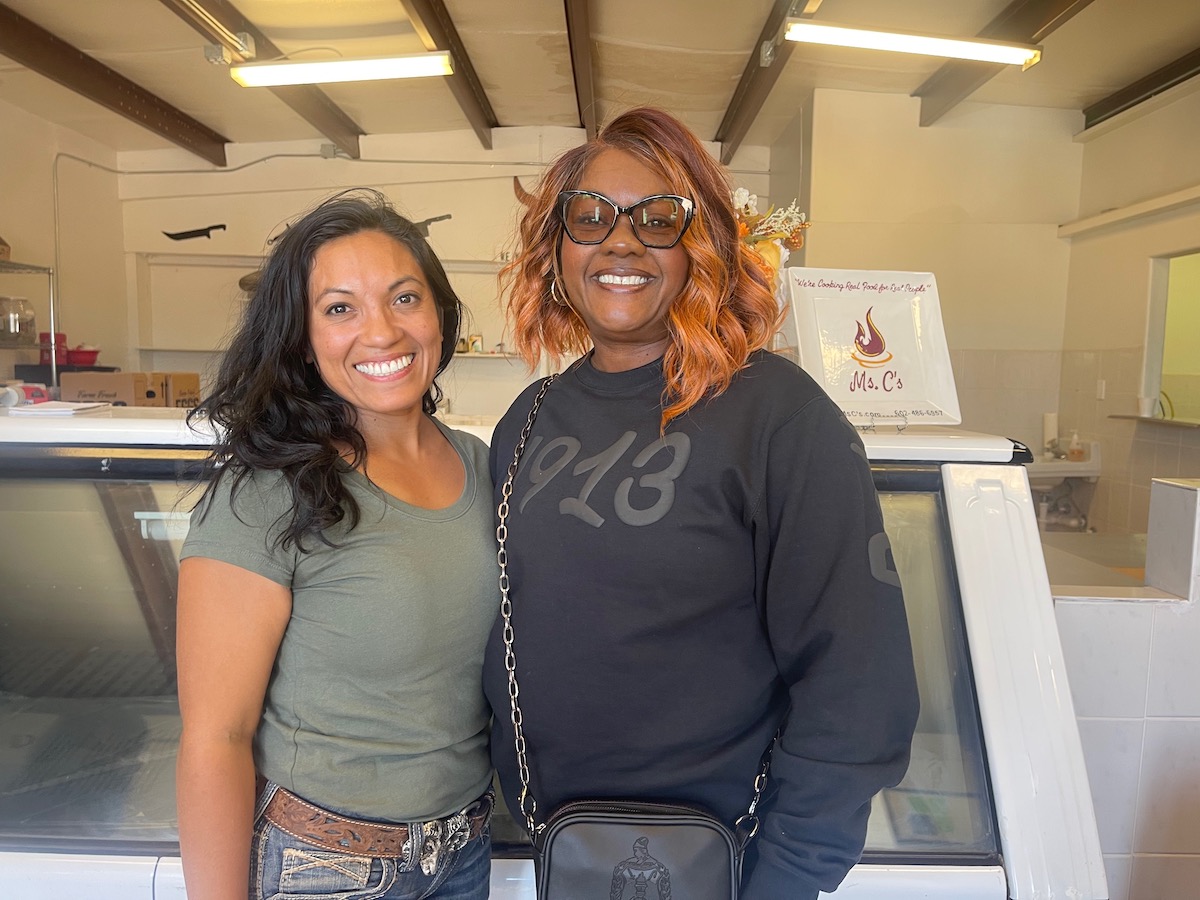
Rachael and the First Lady of Sierra Vista, Arizona, Ramona McCaa
Getting Started
As the Stewarts researched farming, they learned that as of 1920, Black farmers made up 14% of all farmers in the U.S. Now the number stands at less than 2%.
They reached out and networked with Black and minority farmers on social media, connecting with Mark Jacobs, an urban farmer in Seattle who originally hails from Guyana.
Their ambition grew with their network. Now they are leading a movement to encourage Black and minority farmers to follow in their footsteps regardless of their geographic location, and it’s seeing results.
Nonprofit for learning and community building
The Stewarts created their nonprofit, People 1st Global Food and Land Reclamation Foundation, with a mission to “build a self-sufficient food economy, supporting farming, entrepreneurship and land ownership.”
To that end they launched the Small Minority Ranchers and Farmers Conference, which brought experienced farmers and ranchers together with people who were new to the industry.
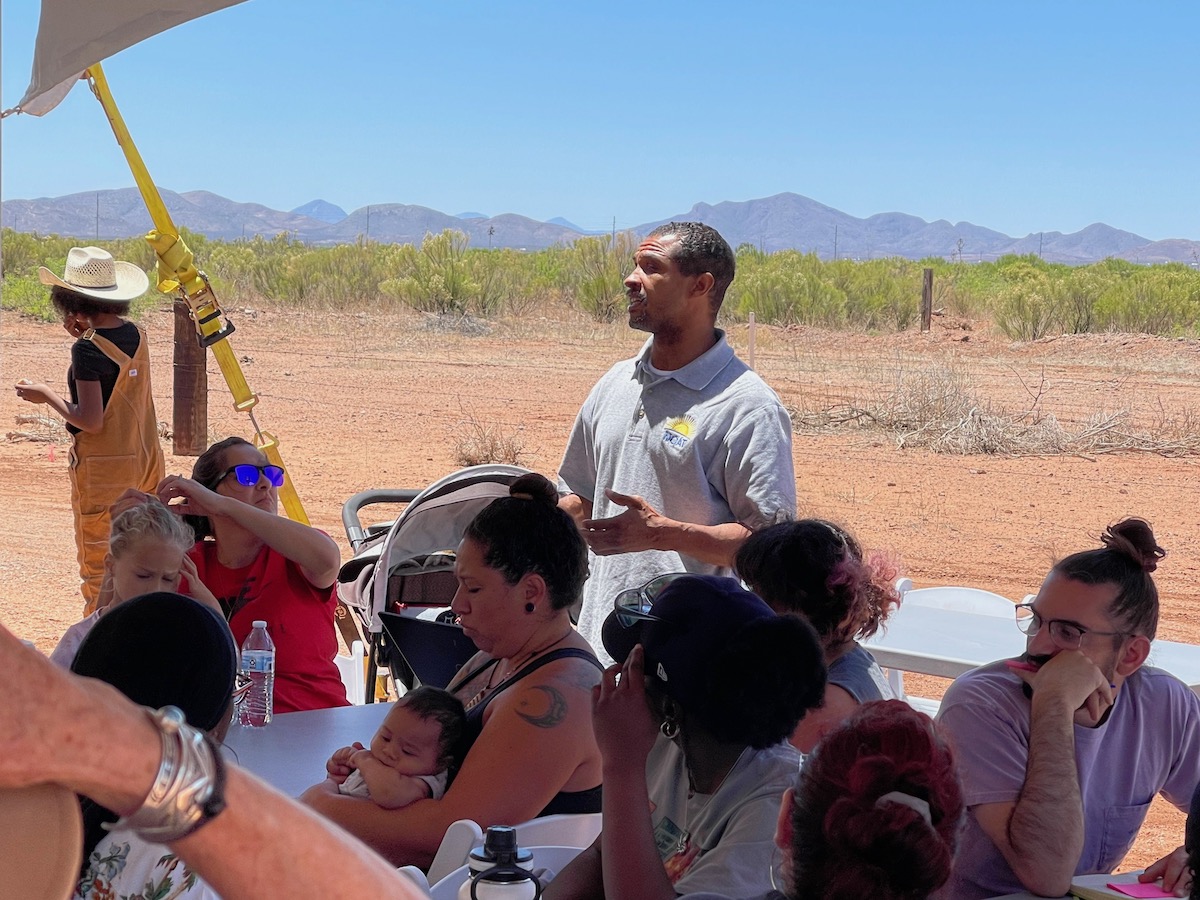
Sustainable Agriculture Specialist, Justin Duncan of NCAT
The Stewarts launched the conference last year, and this year’s event was bigger, with a number of subject matter experts on hand with the overarching theme of learning to farm and ranch using sustainable and organic methods that are good for the soil.
Speakers included Justin Duncan from the National Center for Appropriate Technology’s ATTRA program, who discussed sustainable farming practices and ways to increase soil durability and longevity to produce food far into the future.
Along with Mr. Duncan, multiple speakers were on hand from the USDA in Washington, D.C., the ASU Swette Center for sustainable resources, and more.
Ramona McCaa, the first lady of Sierra Vista, Arizona, was in attendance, and she expressed her amazement at the movement the Stewarts are leading.
“I’ve got the fever,” she said. “The Stewarts have convinced me to buy some land!”
Attendees learned about best practices for sustainable farming, sustainable ranching, becoming certified organic farmers, and other topics related to sustainable farming.
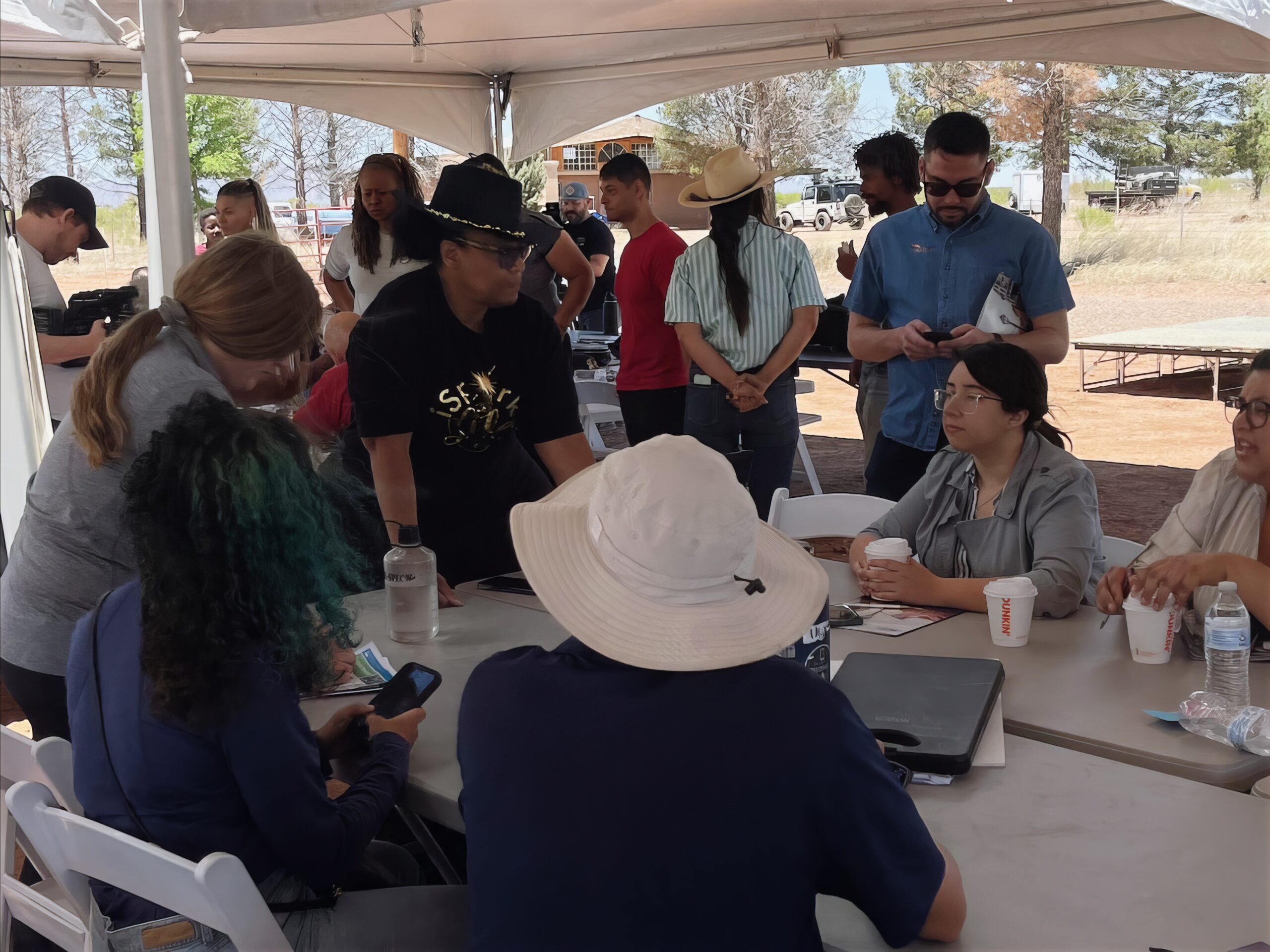
Conference attendees discussing topics presented
Between sessions, attendees from around the country traded information and plans to establish support networks as they move forward on their journeys.
The Stewarts are inspiring people to try farming who had never considered it previously. Starlet and Jeff Strother, originally from Washington, D.C., are starting a ranch and farm with Elijah Newell. They already have some animals, and will be adding crops soon.
Reflecting on the change she’s made, Starlet Strother noted, “If you had asked me in D.C. if I ever thought I’d be a farmer in rural Arizona, the answer is no, but here we are.”
Southwest Black Farmers, family, and the for-profit ranch
The Stewarts are a couple constantly in motion. In addition to being leaders helping new entrepreneurs become farmers and ranchers, they officially closed on their for-profit livestock harvesting facility the day before the conference.
Stew said that in addition to raising their own livestock, they plan to purchase livestock from other sustainable ranchers in their network, process it, and sell it on to market.
When asked if he feels like their family is finally done planning and setting up their new enterprise, Stew said, “I’m always planning five years down the road.” Rachael nodded in agreement and said that while Douglas, Arizona, may be off the beaten path, “there is real opportunity out here for motivated people!”
The sustainable future for the Stewarts and the nation
Both Stew and Rachael are proud to be showing their four children what leadership looks like.
Rachael said, “We think it’s important our kids see people who look like them in a position of leadership as successful entrepreneurs and business owners. Plus, we are outside all the time, and now our kids get to see and experience a different way of living healthily, sustainably, and learning how to provide for themselves in the future.”
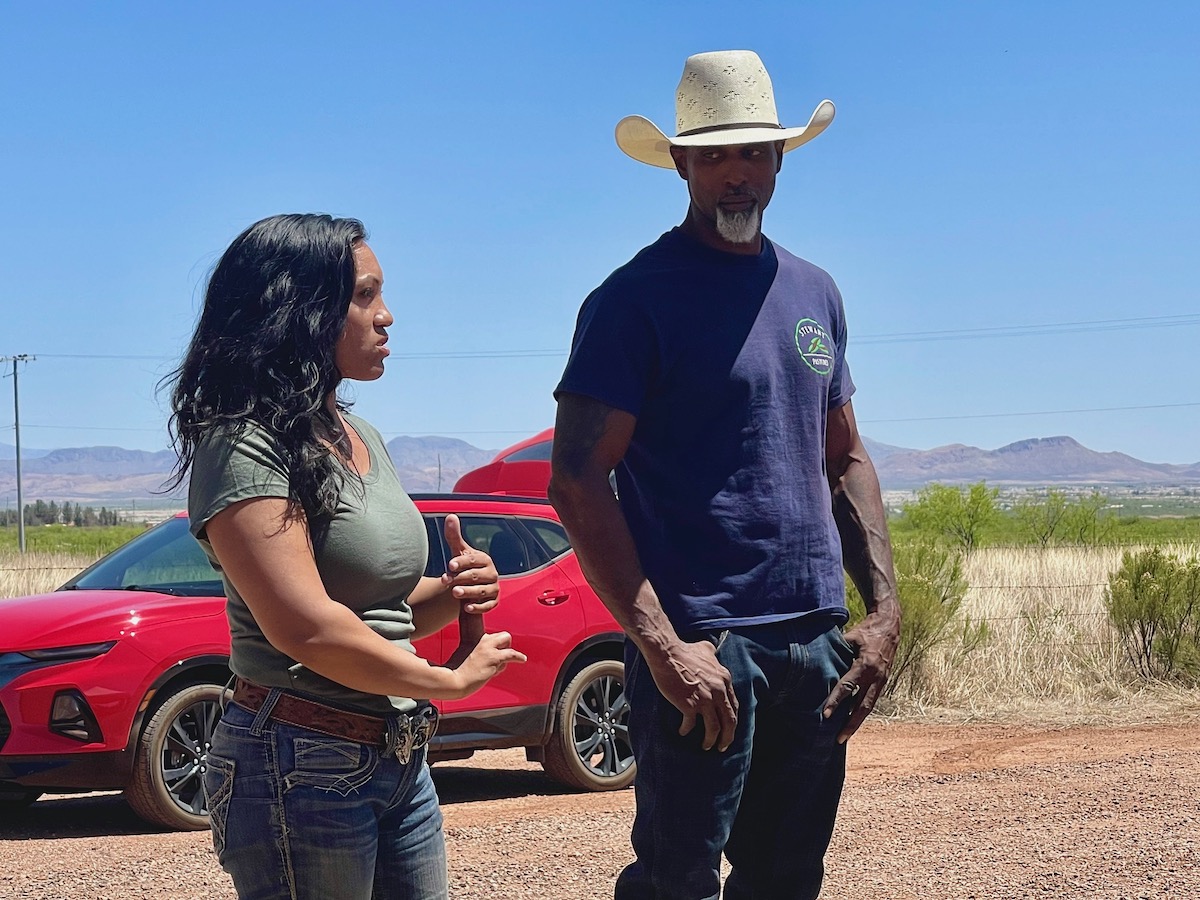
Rachael and Stew welcome everyone to the conference
Pattern Energy was pleased to sponsor the 2nd Annual Small Minority Farmers and Ranchers Conference. The Stewarts’ work supporting sustainable ranching practices and self-sufficient food economies is an important part of building a greener future.
As the day came to a close, hands were shaken, people posed for photos together, and the air was full of laughter and good feelings.
“This is what happens when good people get together with the goal of helping each other,” Rachael said.
Then she hurried off, as she had to talk to friends about helping them get settled on the ranch land they purchased.